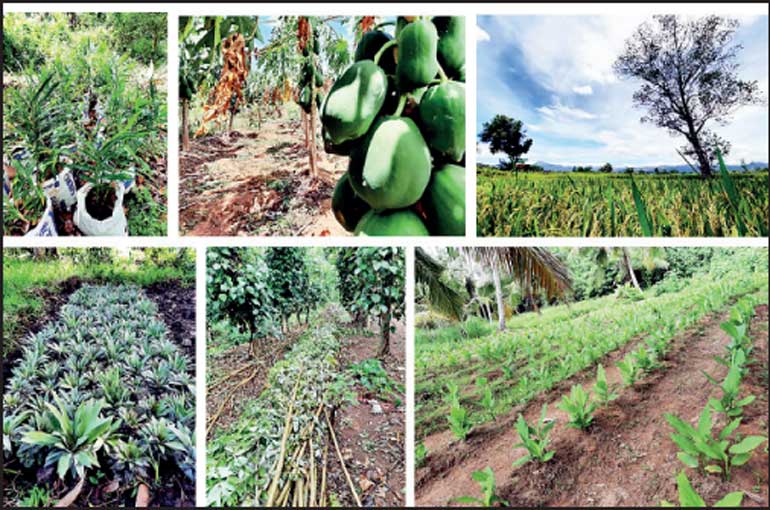Monday Feb 23, 2026
Monday Feb 23, 2026
Friday, 19 November 2021 00:00 - - {{hitsCtrl.values.hits}}

The demand for organic food products is continuously increasing due to the growing interest in markets such as EU, USA, Middle East, Japan, and China. Among the producing countries, Sri Lanka maintains a reputation as a reliable producer and supplier of organic agricultural products adhering to the internationally required organic standards such as ‘EU Organic,’ ‘USDA,’ ‘JAS,’ etc.
Even during COVID-19 pandemic, Sri Lanka has received a considerable number of orders for organic food products such as tea, spices, coconut kernel products, jack fruit products, traditional rice, kithul treacle, etc. As a result, increasing the supply base of organic food products to serve the foreign orders on time is necessary to bring more foreign currency to the country. Europe, USA, Canada, Japan, and Australia are the main markets for these products. Even though our farmers/processors follow organic agricultural and processing practices, the products will not be marketed as ‘organic’ unless it is verified and certified by a third-party-accredited certification body.
With the objective of empowering small farmer groups to cater to the overseas markets, the Sri Lanka Export Development Board (EDB) implemented an assistance scheme to assist them to acquire organic certification from internationally accredited certification bodies.
The selected farmer groups were provided support to acquire organic certifications for a maximum of two organic standards (EU/USDA-NOP/JAS, etc.) and renew it for a period of two consecutive years, enabling them to establish a stable business. The project has facilitated five farmer groups including a total of 254 farmers to certify 130 Ha of land as organic.
During the project implementation, an awareness workshop was held to educate the farmer on the process to be followed in establishing an Internal Control System (ICS), maintaining documents, etc., which are mandatory activities of the certification process. The farmer groups were linked with the accredited organic certification bodies such as Control Union Inspection Ltd. and Mayacert Ltd. operating in Sri Lanka enabling them to proceed with the certification.
The EDB was financially supported by SME Development Programme of GIZ in Sri Lanka to make this scheme a success.
The beneficiary farmer groups are into the production of spices, coconut-based products, processed/raw fruits and vegetable, coffee, traditional rice, kithul, etc. Details of the farmer groups are available in EDB web and could be obtained via the link https://bit.ly/Farmer-Groups.
Currently, in Sri Lanka, organic certification is done by the private sector certification bodies accredited and recognized internationally. Most of our farmers are operating in small-scale and reluctant to convert their farms from conventional to organic due to the high cost of certification to be incurred for certification. Therefore, SME farmers/farmer groups tend to join with organic exporters willing to invest on to get them certified as organic. In such a situation, organic certification is owned by the exporter and farmers are not in a position to access direct market or supply their products to other exporters/ traders. Hence, the independent decision-making ability of Sri Lankan organic farmers/processors is poor, as they have to depend on the exporter/trader to market their products.
Empowering farmer groups by assisting them to obtain organic certification will facilitate Sri Lankan agro industries to move into organic agriculture in line with the global trends and to obtain high value for their products.